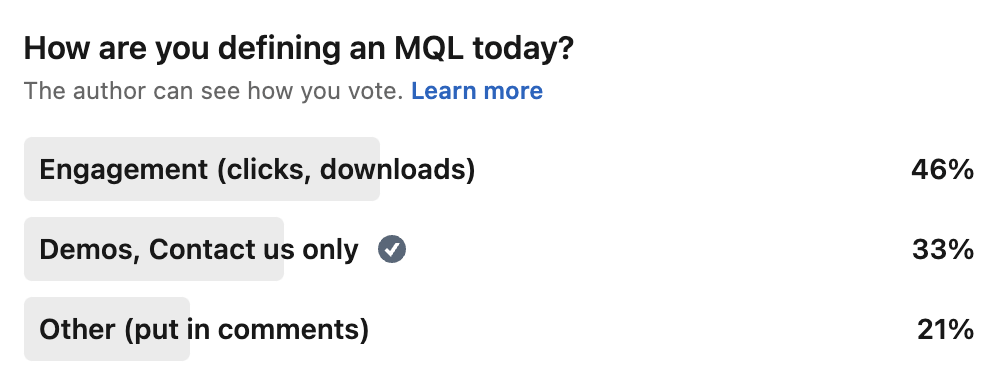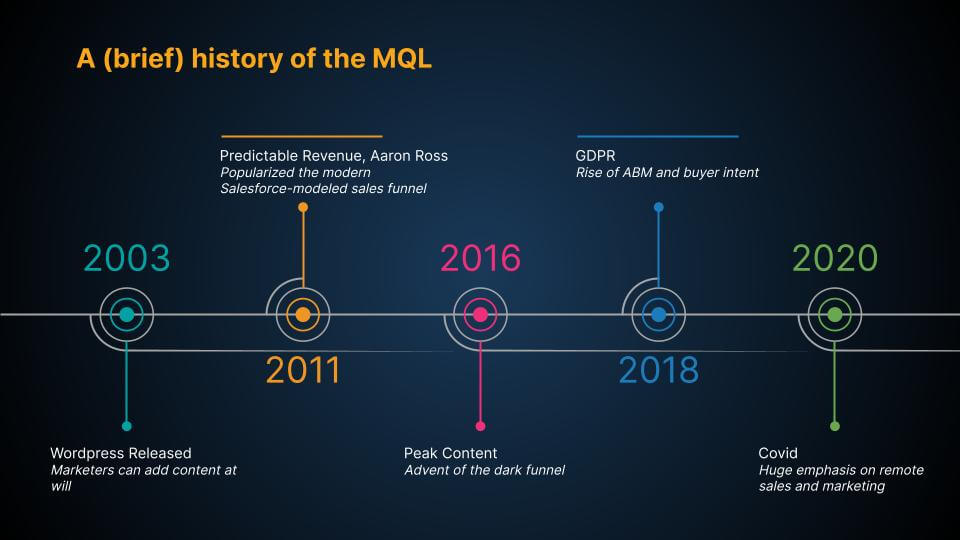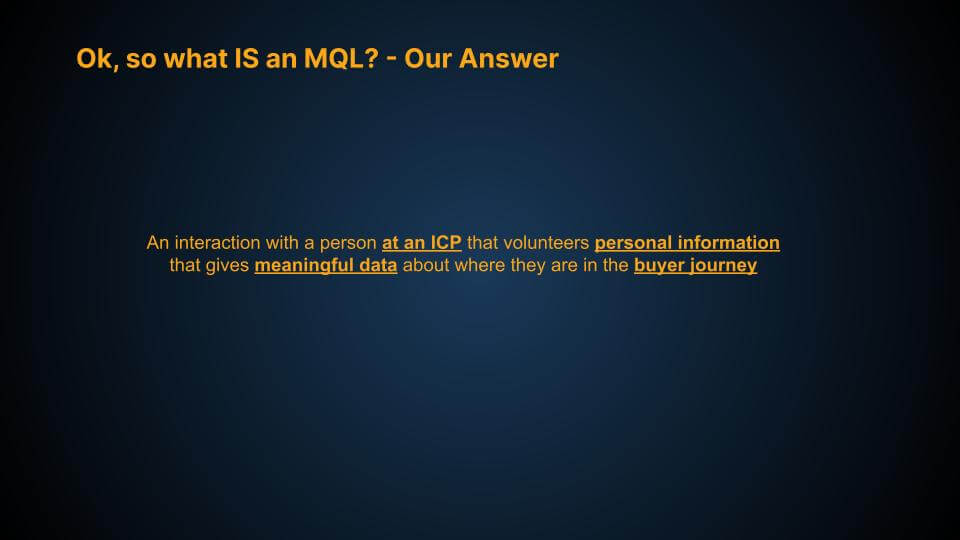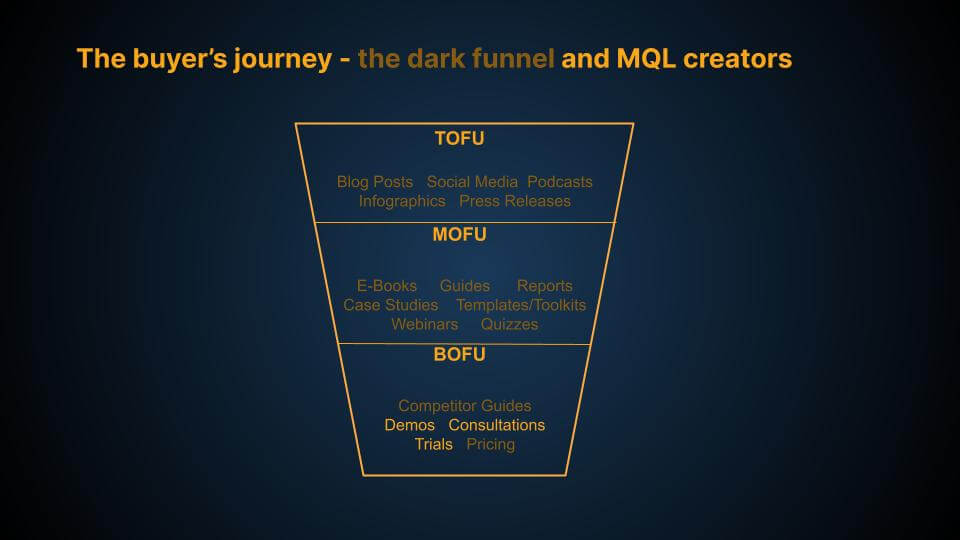Webinar Recap: Moving past the MQL: Rethinking the MQL Definition


What's your MQL Definition?
One of the most important and least defined metrics in the marketing world is the Marketing Qualified Lead (MQL). A vestige of the Predictable Revenue model of years past, MQL’s have stuck around to be critical to many organizations - although they often don’t deliver on their promise.
To find out what an MQL is, how it’s used, and what it (should) be, I sat down with Jason Myers, CRO at the Austin Lawrence Group, for a discussion on the most debated metric in Marketing. See the recording below, and keep reading for a recap!
For a copy of our presentation, click here.
https://youtu.be/3wL9WxXdJIQ
Topic: The Marketing World is Conflicted on MQL’s
A recent poll of marketing and sales leaders on Linkedin showed that there is widespread confusion on how to define an MQL:

Many of the ‘other’ respondents went on to say that while demo requests may show intent, they may just be gathering intel or shopping.
Takeaway: If Sales and Marketing have been fighting over metric definitions in your organization, you’re not alone.
Topic: The History of the MQL
How did we get here? Jason went on to walk us through the history of the MQL in detail, beginning all the way back in 2003:

Beginning in 2003 with the release of WordPress, MQL’s went on to propagate through:
- The popularity of Aaron Ross’s book Predictable Revenue in 2011, which defined much of the salesforce-led sales cycle and put MQL’s at the top of the funnel
- “Peak Content” - the idea that in 2016 the traditional content gates had to start being torn down because of the sheer amount of content available to each buyer
- The impact of GDPR on websites to necessitate cookie opt-in and stop cold calling
- COVID-19 and the advent of remote selling, which flooded buyers with (even more) content
Takeaway: Although a traditional funnel-based sales model with many MQL’s at the top worked in 2011, the world has changed
Topic: Our Definition of the MQL
Jason and I went on to talk more about a sustainable and future-facing definition for an MQL, and arrived at the following conclusion:

Notice that this definition has 4 constituent parts:
- The person must be a part of an Ideal Customer Profile (ICP) to make sure their company is a good fit as a buyer
- The person must give us personal information (PII) that allows us to meaningfully contact them in the future
- Our Lead has to give us meaningful data about where they are in the buying journey, indicating they are thinking in some way about solving a problem they have with a product, and that your product is now in the mix
Takeaway: A strict and progressive definition for the MQL is both sustainable for the near-term future and easy to measure progress by
Topic: The Buyer Journey and the Dark Content Funnel
Historically, buyers’ interactions with brands could be measured through gated content and storing cookies in the browser. However, privacy restrictions and regulations have made it so that the majority of content created by the marketing team is unattributable or “dark”, and even less of it creates MQL’s:

Takeaway: Marketing should create content to gather MQL’s - but that should only be part of their aim. Since so much of the funnel is dark, the majority of content created should be impactful - the kind of content you would want to consume